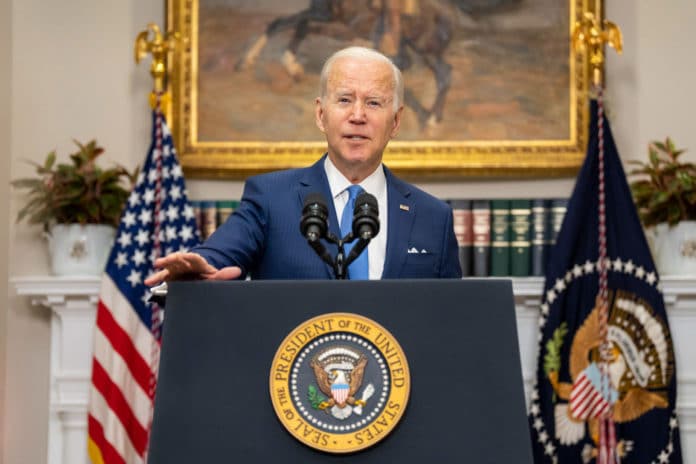You don’t need to consult with AAA, or drive 1,600 miles last week as I did, to know that, no matter where you reside, you’re currently paying the highest-ever average price per gallon at the pump.
Many believe Democrats are happy with this harrowing development. And despite what some publicly claim, it’s truer than ever and done for nefarious political reasons.
There is no more perfect encapsulation of 2022 Democrats than this:
A 72-year-old Senator with a net worth in the millions who has been in politics since 1975 bragging about not being bothered by record-breaking gas prices since she drives electric.
Unreal. https://t.co/ekOf7mL6bq
— Rob Smith 🇺🇸 (@robsmithonline) June 7, 2022
President Joe Biden naively wants to shift away from fossil fuels, and a few weeks ago in Japan, gave away the game when he argued, “We’re going through an incredible transition that is taking place that, God willing, when it’s over, we’ll be stronger and the world will be stronger and less reliant on fossil fuels.”
That statement must make hard-working Americans who struggle to fill their cars happy.
The parochial environmental cabal — a fundamentally anti-human lobby — runs this administration.
Interior Secretary Deb Haaland recently refused to admit gas prices are too high.
When Sen. John Barrasso asked, “It sounds like you’re unwilling to say that gas prices are too high,” the far-left zealot refused to say they were.
Energy Secretary Jennifer Granholm, who’s anti-energy and even less qualified for her job, has also scoffed at suffering Americans.
If the Biden administration cared about high gas prices, they would have increased domestic oil production long ago. Instead they cancelled transactions in the Gulf of Mexico and near Alaska, taking millions of acres off the auction block.
The administration is about to let the nationwide offshore drilling program expire in July, without a new plan in place.
While President Donald Trump opened 100 million acres of public land and water for exploration, Biden promised to ban new permits on the same lands and water.
Releasing gas from the Strategic Petroleum Reserve, as Biden has been doing, is a symbolic measure, with limited impact.
Continuous actions show the White House and Democrats — many of whom are wealthy or live in cities and therefore don’t drive like the rest of us — enjoy high gas prices as part of a strategy to transition away from vital fossil fuels.
And when they do acknowledge the record inflation and fuel prices, it comes back to Vladimir Putin, who Biden blamed in a recent Wall Street Journal editorial, but Americans aren’t falling for it anymore.
There is no infrastructure or interest to support electric vehicles. There are fewer than 50,000 public charging sites in the United States, and the famous 2021 infrastructure bill will never produce an adequate number by 2030.
Raising the cost of fossil fuels puts us in danger. The emergence of the U.S. as the world’s energy superpower weakened rogue regimes like Iran, Russia and Saudi Arabia.
That status enhanced our national security power and created jobs. Who would oppose that, other than those hoping to weaken America?
Desperate to appear concerned, even if they’re not, Team Biden is now begging failed states for oil.
He sent officials to Venezuela — a nation backed by China, Cuba and Russia — earlier this year to potentially lift sanctions and restrictions, so the communist regime could sell its oil internationally.
Why would Democrats and the White House want to increase our dependence on odious states? Wouldn’t increasing domestic fuel production be wiser?
Biden is the least popular president in modern history through 17 months on the job.
Bankrupting Americans and enabling enemies to assuage a radical eco agenda is despicable, and the president should be ashamed.
A.J. Kaufman
A.J. Kaufman is an Alpha News columnist. His work has appeared in the Baltimore Sun, Florida Sun-Sentinel, Indianapolis Star, Israel National News, Orange County Register, St. Cloud Times, Star-Tribune, and across AIM Media Midwest and the Internet. Kaufman previously worked as a school teacher and military historian.

















